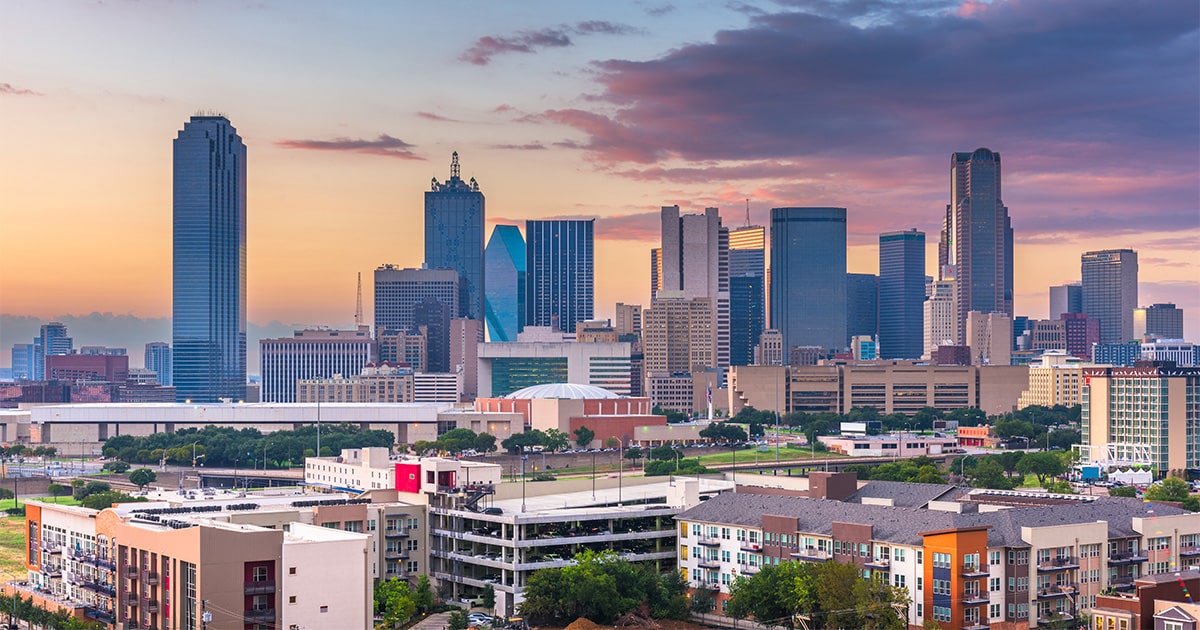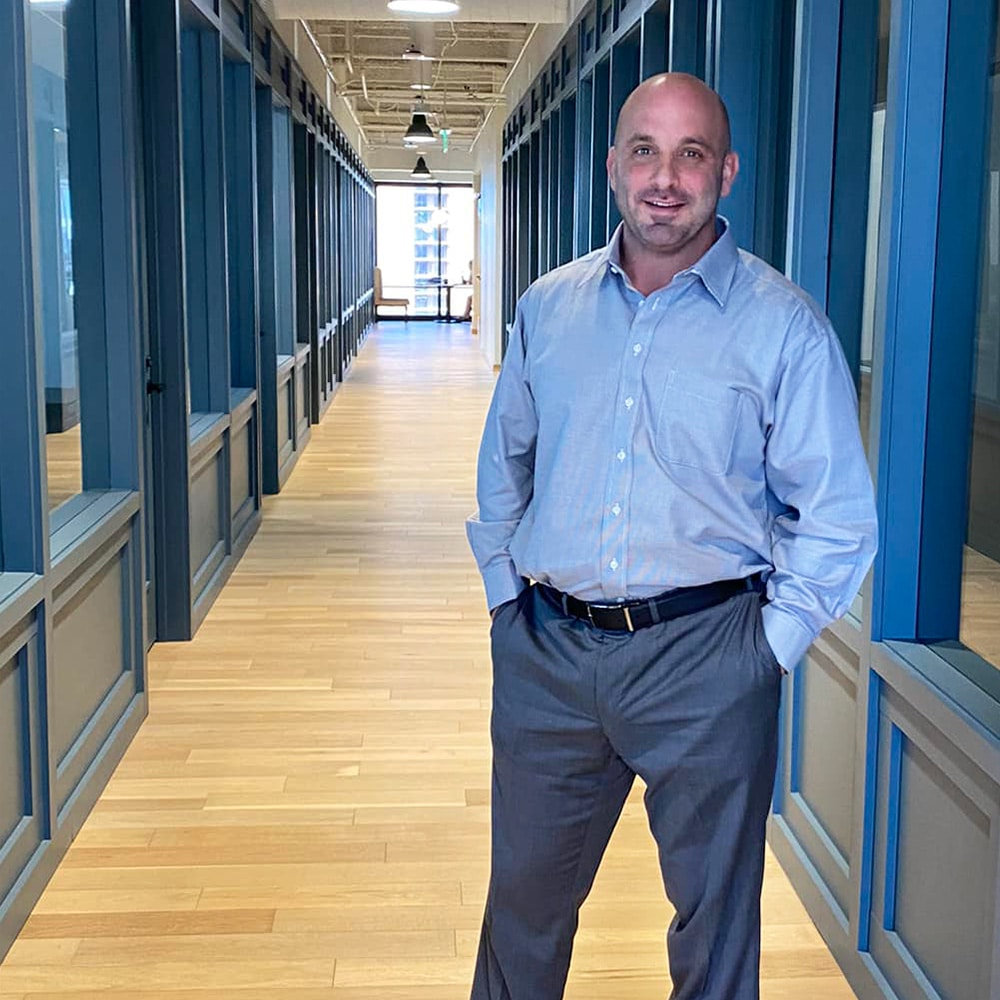Get a Competent Asylum Attorney to Give Yourself a Chance for Asylum
Asylum attorneys at The Piri Law Firm passionately advocate for our asylum seeker clients who are struggling with the US immigration law system.
Using our ambitious and assertive intellectual style, our asylum attorneys help asylum seekers navigate through the complexities of the Dallas / Fort Worth asylum process.
Contact us at (833) 600-0029 (Fort Worth, TX) to see how we can help you.
You can also schedule your appointment.
Recent Asylum Seeker Issues in Texas
Recently, the United States Customs and Border Protection Agency (USCBP) and its Border Patrol component encountered 1,659,206 undocumented people on and around the U.S.-Mexico border.
One might think this number would indicate a significant amount of asylum cases flooding U.S. immigration courts; however, this is not the case. 23,827 total asylum decisions were made in 2021, with only 35% being granted refuge and 1.7% presented with another type of relief.
These statistics are increasingly problematic when the current state of U.S. immigration courts is considered. Texas sees the second-highest number of immigration cases per year, and by the end of May 2021 alone, there were 171,579 pending cases in Texas.
Most of these cases from 2021 are backlogged cases that have been pending for years, leaving those awaiting asylum detained in the unforgiving conditions of U.S. Border Patrol Processing Facilities. For those rare few whose cases are heard, their chances of being deported dramatically increase if their hearing is in Texas. Houston alone has a 90.9% denial rate across 22 different judges.
One judge in particular, Judge Monique Harris, has decided 994 asylum cases between 2017 and 2022 – and has denied all forms of relief to 961. Approximately 99% of her cases consist of asylum seekers from states such as El Salvador, Honduras, Guatemala, Colombia, and Mexico, many (if not all) of the denied applicants are returned to Mexico by USCBP.
This paper will explore how the high asylum denial rate of Texas judges affects the U.S. / Mexico relationship and strains the immigration policies of Mexico.
Texas Asylum Denial Rates
As more Texas judges continue to deny most immigration cases brought before them, they are single-handedly contributing to the asylum strain Mexico is experiencing, thus harming the relationship between the U.S. and Mexico. Refugee programs in Mexico are underfunded, overwhelmed, and inadequately equipped to handle the massive ongoing humanitarian crisis within the region.
Dan Kosten, an author for the National Immigration Forum, reports on this phenomenon by explaining that “COMAR adjudicators regularly deny asylum to individuals from El Salvador, Guatemala, and Honduras under the false assumption that they can be safely repatriated to their home countries.”
COMAR, otherwise known as the Mexican Commission for Refugee Assistance, is the Mexican governmental body responsible for refugee status determination, implementing procedures proposed within the Cartagena Declaration and the 1951 Refugee Convention, and overseeing general immigration policy within Mexico.
COMAR has been greatly influenced by immigration policies implemented by the United States (further reinforced by Texas courts) such as former President Trump’s “Remain in Mexico” policy. This program requires migrants seeking asylum to remain in Mexico until their U.S. immigration court date.
A policy such as this is harmful in a multitude of ways, as it allows the U.S. to cater to more conservative beliefs backed by Texas judges, further separate themselves from international refugee law by denying the rights asylum seekers are legally entitled to, and forcing migrants into unsafe and unsanitary conditions.
Texas immigration judges are more likely to dismiss migrant cases of gang violence and domestic violence, making a subjective distinction between fear of harm and a near-death experience. They will claim that while gangs may pose a risk to an individual, the migrant should be returned to their country of origin unless they have experienced a near-death situation and fear it happening again.
Increased Return Rate of Migrants
The increased return rate of migrants & asylum seeker back over the U.S. / Mexico border further stresses the U.S. and Mexico relationship, because it is becoming increasingly difficult for COMAR to advocate for those wishing to gain asylum in the U.S. when the majority of cases do not even make it to court.
The absurd denial rate of Texan immigration judges has bred an environment of deception at the southern border, as some migrants have claimed in interviews that “…they were instructed to sign voluntary return documents without reading them [or] immigration agents tried to dissuade them from applying for refugee status and pressured them to agree to voluntary return, even when they said they would be at risk of violence and persecution in their home countries.” Texas judges, and U.S. immigration courts in general, should not have this much power over the bilateral relationship between two countries.
There is a line between specificity and blatant disregard for international jurisprudence, and Texas is toeing the line between the two. There is no reason why judges should go out of their way to make the lives of asylum seekers more arduous, and it is illogical to believe a single state should have major sway between the U.S. and Mexico as a whole.
Denying massive numbers of Latin American refugees asylum because their fear of persecution is not well-founded enough in the eyes of the conservative-leaning law does not mean it is appropriate to place the entire refugee burden on Mexico. The denial rate of judges reinforces that the U.S. has no interest in engaging in a cooperative relationship with Mexico to effectively tackle the humanitarian crisis in Latin America.
The U.S. has a disturbing history of forcing migrants onto ill-equipped nations, rather than abiding by its obligation to process them under domestic and international law. Therefore, if high denial rates in Texas continue, Mexico will need to reevaluate its current immigration policies and create a new program to alleviate the migrant crisis on its end.

Solutions for Asylum Seeker
COMAR could coordinate with the U.S. government to prompt the demilitarization of the U.S. / Mexico border and ensure a portion of migrants seeking asylum within the United States are processed and detained within the United States.
Mexico and the United States could split this according to processing time, meaning those closer to case resolution or a trial date would be held in the United States, and those further from the court date or still in the beginning processes would be kept in Mexico. Reconstruction of current policy would confront the U.S. mindset of “out of sight, out of mind,” and force the United States to take accountability for their lacking policies and behaviors to restart the discussion around immigration policy.
A policy change is necessary to change the current relationship between the U.S. and Mexico from parasitic to symbiotic. Finally, an overall change would ensure asylum seekers are given another chance at life and not another government-sponsored plane ride back to their country of origin.
More Refugees & Asylum Seekers Arrived
More refugees arrived in the United States in the first eight months of fiscal year (FY) 2023 than any year since FY 2017.
Adding a new element to the resettlement program, the Biden administration greenlighted an initiative allowing U.S. residents to sponsor already identified refugees for resettlement. And beyond the U.S. resettlement and asylum systems, the administration has advanced new policies to address pressing protection needs in other ways while also reducing pressure on the U.S.-Mexico border, which has witnessed record arrivals.
These include grants of temporary status known as parole for up to 30,000 nationals of Cuba, Haiti, Nicaragua, and Venezuela monthly; as well as humanitarian parole for displaced Afghans and Ukrainians.
Pathway for Asylum Seekers
The U.S. resettlement program is for people outside the United States and historically has resettled more refugees annually than any other country.
The asylum pathway is for those who present themselves at U.S. ports of entry or are already within the country and seek protection. U.S. refugee resettlement has fluctuated significantly over the past decade, reflecting the priority of presidential administrations.
While the Trump administration reduced the annual resettlement cap to a historic low of 15,000 by its last year in office (FY 2021), President Joe Biden reversed course and raised the cap to 62,500 for the remainder of FY 2021 and then to 125,000 for FY 2022 and FY 2023. Despite these increases, the pace of actual resettlement has lagged, although it has steadily ticked up as the pandemic has waned and processing resumed.
Approximately 11,400 refugees were resettled in FY 2021, 25,500 in FY 2022, and 31,800 in the first eight months of FY 2023. Over the 43 years of the modern resettlement program, an average of approximately 73,300 refugees have been resettled annually.
Additionally, approximately 17,700 people received asylum in FY 2021 (the most recent data available), the fewest since 13,800 asylum petitions were granted in FY 1994. More than 1.3 million asylum applications awaited processing as of May 2023, and many among the record number of arrivals at the U.S.-Mexico border intend to seek asylum.
Summary for Asylum Seeker
Using the most recent data available, including the first eight months of FY 2023 (October 1, 2022 through May 31, 2023) and historical refugee arrival figures from the State Department and FY 2021 asylum data from the Department of Homeland Security (DHS), this Spotlight examines characteristics of the U.S. refugee and asylee populations, including top countries of origin and top states for refugee resettlement.
It provides numbers for refugees and asylees who have become lawful permanent residents (LPRs, also known as green-card holders).
Experienced Asylum Lawyer for Immigration Court
You can trust our Dallas asylum lawyer team if you are looking for a reputable asylum lawyer to help you with your asylum case in the immigration court in Dallas, TX.
The Piri Law Firm‘s attorneys have years of experience and will go above and beyond to ensure that you receive the best possible outcome for your case in Immigration Court in Texas.






